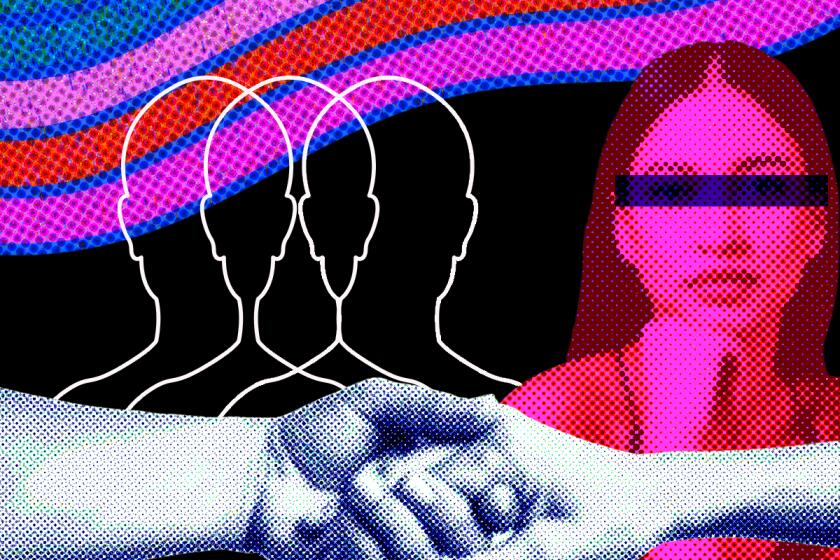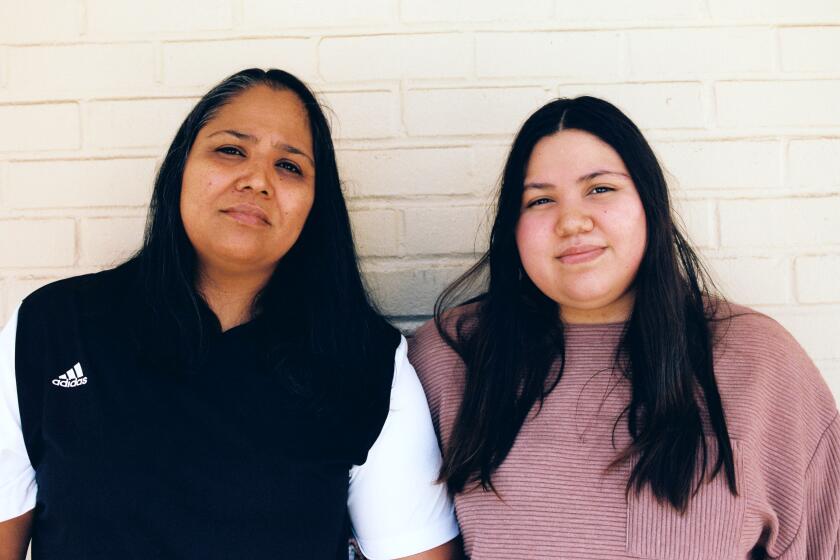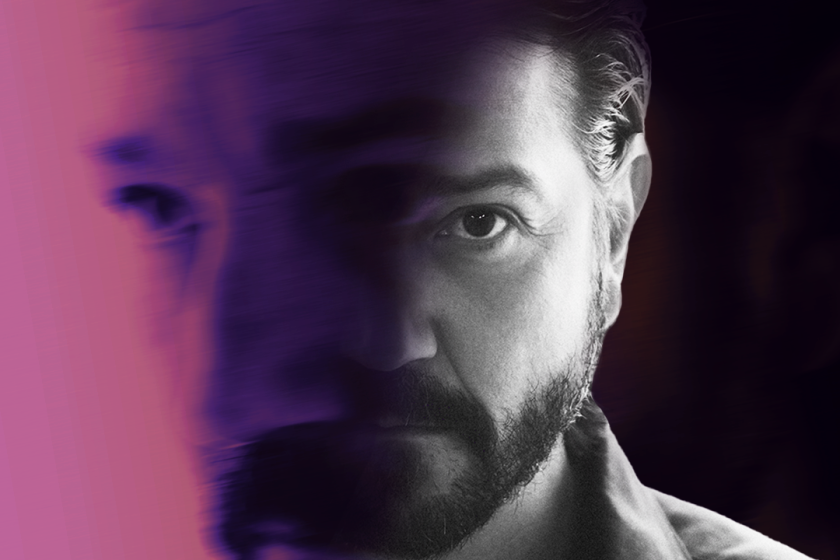
- Share via
Finding a Latinx therapist who understands complicated family dynamics stemming from migration and intergenerational trauma can sometimes feel like looking for a needle in a haystack.
Not only are Latino communities some of the most underserved when it comes to mental health services, but also just 7% of licensed psychologists in the U.S. identify as Latinx and an even smaller percentage can provide services in Spanish. Thanks to efforts like the Latinx Therapists Action Network, this is starting to change.
This healing justice network of Latinx practitioners was founded by Francisca Porchas Coronado, who said it was her goal to bring together mental health professionals committed to interrupting the generational trauma caused by the U.S. immigration system while also building well-being for migrant people on the front lines of the struggle for immigrant rights.
With the help of Latina therapists, first-generation women are laying down boundaries and addressing unhealthy family dynamics, but it can sometimes feel like thankless work.
Healing is not easy work, Porchas Coronado said. Working through painful memories and realizations is grueling, and family members often don’t respond well to changes in behavior — especially if it means being asked to adhere to boundaries that didn’t previously exist. But all of this is certainly worth the effort.
“A lot of people say that a single person can’t break all of the generational curses alone, but I’m of the belief that a single person can break a lot of curses and change their families for generations to come,” Porchas Coronado said.
Like many eldest daughters, Shirley Vilca broke new ground for her family. Vilca is a first-generation Mexican and Peruvian American and the director of development at Prism, the nonprofit newsroom where we both work. She told me that as a young person, she thought the depression and anxiety she experienced was a “cultural thing,” tied to her stressful role as the eldest daughter to immigrant parents.
She attended her first therapy sessions in high school, though her parents rejected much of what she tried to implement. Vilca said her mother also internalized her decision to enter therapy, believing that it somehow meant her mom was a bad parent. Making matters even more challenging, Vilca’s white therapist didn’t understand the cultural context she was operating in and he consistently questioned her relationship to her family.
Toxic gratitude or ‘Si Dios Quiere Syndrome’ is the concept that Latinos are too content with just receiving scraps instead of demanding what they deserve.
She didn’t let any of this derail her commitment to therapy, but in college Vilca’s mental health issues worsened. She was eventually diagnosed with bipolar disorder. Somehow this clicked something into place for her parents and they came to the realization that Vilca’s mental health issues were real and not imagined. Vilca’s journey eventually brought her family full circle. Not only did her mom eventually enter therapy, but Vilca’s struggle to find Latina mental health practitioners inspired her sister to enter the field.
But not every family gets a happy ending or even a first step toward healing — especially when parents don’t believe in therapy or refuse to engage the process.
There are entire bodies of research about why mental health care is stigmatized in Latinx communities, but Porchas Coronado said we need to move beyond “the stigma conversation.”
“We tend to focus a lot on what we can do to move ‘older folks’ toward therapy and convince them it’s good. I think we don’t focus enough on how we need to move therapy so that it’s not actually stigmatizing or pathologizing or based on stereotypes from therapists that don’t actually have the cultural and political grounding to serve our communities. I feel like there needs to be a little bit of a revolution of philosophy, values and practice within the mental health world and how therapy is actually done for our people,” Porchas Coronado said.
A new generation of Latinos is having difficult conversations with their parents on topics like mental health and therapy that have often been ignored.
For those who choose to enter therapy, Porchas Coronado issued an important reminder: Your intake session shouldn’t just be an opportunity for the therapist to ask you questions. Potential clients should also feel empowered to ask the therapist about their background, approach to therapy and experiences treating people affected by migration, for example.
The Latinx Therapists Action Network founder said her organization focuses on healing justice and different modalities of care because she firmly believes that one-on-one therapy isn’t for everyone.
“I know that’s a radical statement,” Porchas Coronado laughed. “But I really do think we need to start having serious conversations about how we move people like my mom and your dad toward healing that is mental health-centered and speaks to them and their experience and who they are, instead of trying to push them toward therapy they won’t thrive in with therapists who don’t understand them. We need to start asking our elders what healing looks like for them.”
More to Read
The Latinx experience chronicled
Get the Latinx Files newsletter for stories that capture the multitudes within our communities.
You may occasionally receive promotional content from the Los Angeles Times.










